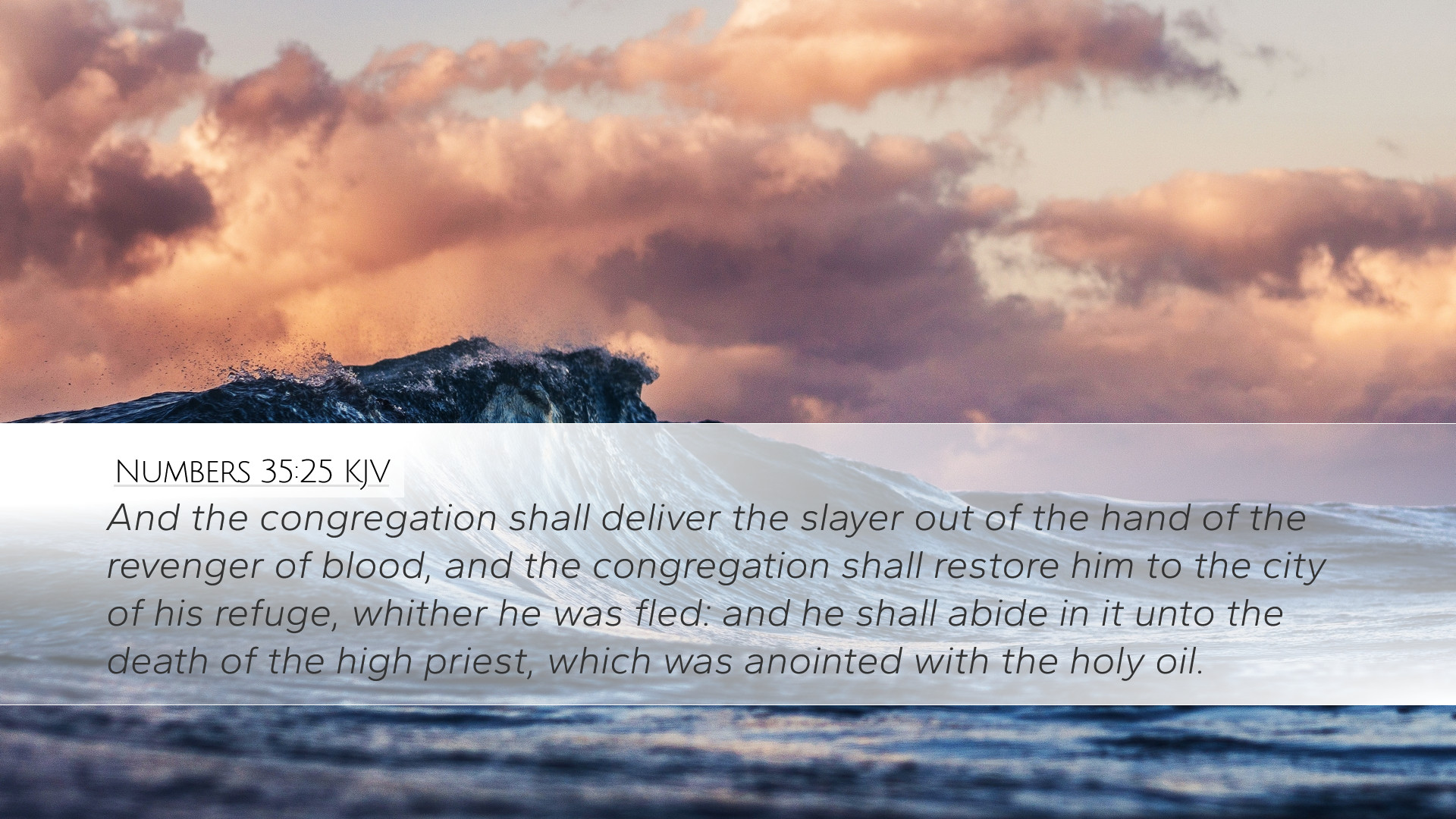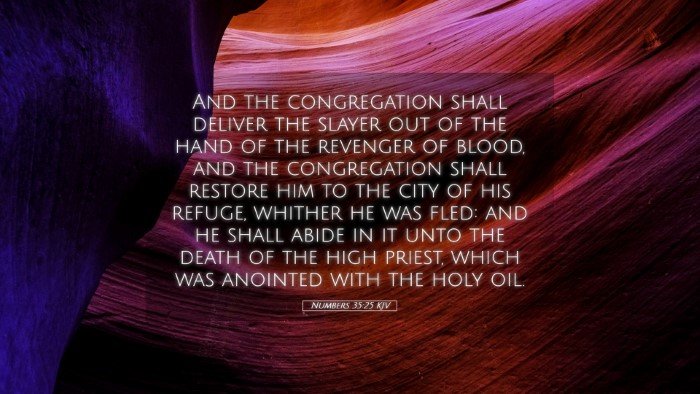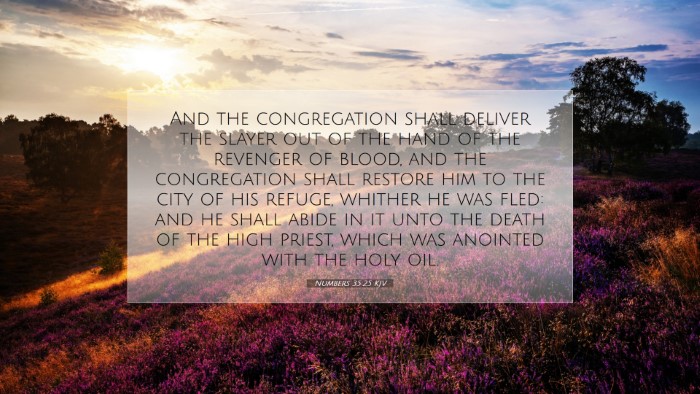Commentary on Numbers 35:25
Bible Verse: “And the congregation shall deliver the slayer out of the hand of the avenger of blood, and the congregation shall restore him to the city of his refuge, whither he was fled: and he shall abide in it unto the death of the high priest, which was anointed with the holy oil.”
Introduction
The verse in Numbers 35:25 serves a pivotal role in the holistic understanding of God's justice and mercy as articulated in the law given to Israel. This commentary draws on insights from public domain commentaries by noted theologians such as Matthew Henry, Albert Barnes, and Adam Clarke to elucidate the meanings and implications of this passage.
Contextual Background
The context surrounding Numbers 35 involves God's instructions to the Israelites regarding cities of refuge. These cities were designated for those who accidentally killed someone, providing them sanctuary from revenge until their case could be fairly adjudicated. Numbers 35:25 specifically addresses the role of the congregation in safeguarding the slayer from the avenger of blood and assures the slayer's protection and restoration to a place of refuge.
Theological Significance
- Divine Justice: The mention of the congregation's role emphasizes the collective responsibility in upholding justice (Barnes). It is a reminder that God's justice must be administered fairly and not hastily through personal vengeance.
- Mercy and Safety: The provision of cities of refuge demonstrates God's mercy. Even in cases of unintentional homicide, there is a pathway to safety and restoration (Henry). This reflects God's desire for life preservation and justice over vengeance.
Analysis of Key Components
“The congregation shall deliver the slayer”
This phrase underscores the importance of community action in matters of justice. It indicates that protecting the innocent is a community obligation. As Barnes elucidates, the congregation's involvement shows that God’s laws are not merely for individuals but are intended to foster a moral society where collective action is necessary.
“Out of the hand of the avenger of blood”
The term "avenger of blood" refers to a relative tasked with ensuring justice for a family member who has been murdered. This role can lead to hasty, unmeasured responses to offenses. Clarke illustrates that the law seeks to temper such impulses, urging the need for due process and careful review of circumstances before any actions are taken.
“Restore him to the city of his refuge”
Restoration is crucial. The slayer, once vindicated, has the opportunity to return to a designated safe haven. Such cities became symbols of God’s mercy and grace, offering second chances. The provision reflects God's heart towards redemption, emphasizing that no one is beyond hope or restoration (Henry).
“Until the death of the high priest”
This phrase points to a significant temporal limit for sanctuary and protection. The death of the high priest symbolizes the conclusion of the individual’s obligation to remain in the city of refuge. Some interpretations suggest a typological connection to Christ, the ultimate High Priest, whose sacrifice provides believers with ultimate refuge and eternal security (Clarke).
Applications for Today
This verse has profound implications for modern readers, especially in discussions around justice, mercy, and community responsibility.
- Community and Collective Welfare: Pastors and congregations can learn from the hosting and protection responsibility depicted in this passage. It calls for vigilance in ensuring that community members are supported and treated fairly.
- God’s Justice and Mercy: The balance of justice and mercy remains critical in today’s society. Believers are encouraged to reflect divine grace in their responses to wrongs—sowing seeds of understanding rather than quick retribution.
- Typology and Christology: The relationship of this law to the work of Christ invites deeper theological reflection. Just as cities of refuge provided safety for the individuals under threat of blood vengeance, Jesus provides believers with a refuge from sin and spiritual death.
Conclusion
Numbers 35:25 presents a beautiful tapestry of God’s concern for justice, societal integrity, and divine mercy. Through the lens of the congregation’s role, the protection against impulsive vengeance, restoration opportunities, and significant limitations such as the death of the high priest, the verse acquires deep theological ramifications. For pastors, students, and scholars, reflecting on this passage prompts discussions around the implications of God’s laws, the community’s role in righteousness, and the hope found in Christ as the ultimate refuge.


